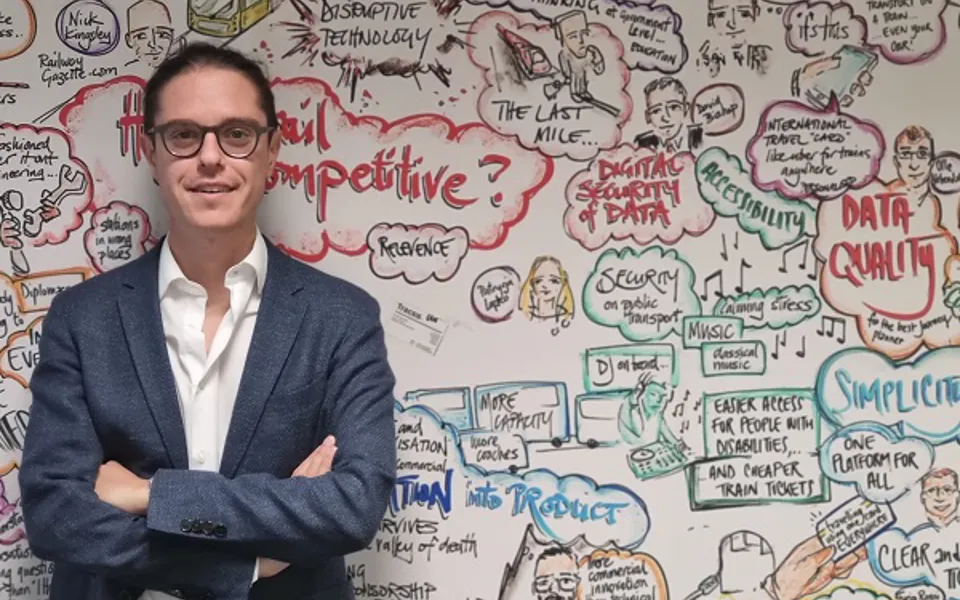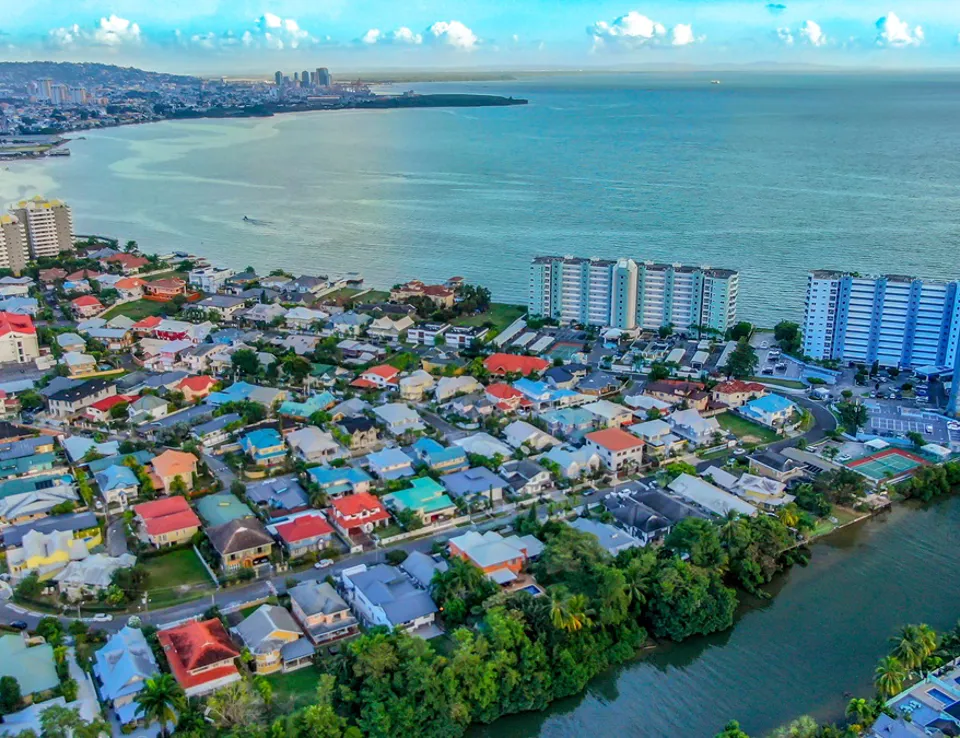
Ricardo’s global sustainable transport team supports governments and international organisations, as well as corporations and trade associations , with policy, strategy and technical advice for all transport sectors across land, sea and air. Here, our Technical Director for Sustainable Transport, Lorenzo Casullo, explains how Ricardo’s unique combination of deep expertise in policy and technology is helping public and private sector customers around the world as they seek trusted solutions to rapidly evolving, complex sustainable transport challenges.
Q. What are the main challenges that your customers in governments and international agencies are facing in relation to transport solutions?
A. A key feature for all our customers is that their challenges are evolving: it’s a very fast-moving policy and business landscape right now.
Our government customers are policymakers and regulators who have long been concerned with the negative impacts of transport in terms of air pollution and climate change. We carried out the technical analysis that underpinned key Green Deal and Fitfor55 Package policy measures so we have a really detailed understanding of how these measures will affect businesses and society. In the UK, we support national and local governments in their efforts to reform regulatory provisions after Brexit, to fund new and emerging technologies and to plan for more sustainable cities.
More recently, policymakers have faced two very different but equally pressing challenges. First, considering their response to the digital transition: how to make it inclusive and maximise the benefits of digital tools in transport, such as journey planners and apps. Secondly, the key challenge of energy costs which although had emerged prior to the current war in Ukraine has been accelerated by it.
In response to these complex and multi-faceted challenges, governments have to find solutions which protect consumers, deliver resilience and security of supply in the face of geopolitical threats, and continue to address climate change. Transport is instrumental to each of these because it’s a large consumer of energy and also a large source of emissions.
Q. How does your team support private corporations and trade associations?
A. Because Ricardo is well-known for our advice to policymakers internationally, increasingly our guidance is being sought by corporate customers, who require our in-depth knowledge and forward-looking awareness of mobility technologies and policy. We know the policy landscape and the regulation so well that we can actually help multi-nationals anticipate what's coming.
It’s always much better to be a leader than a follower if you’re a large company in the transport sector. Indeed, by being a leader or pioneer role-modelling best practice, you can set such a good example that regulators realise that they don’t need to regulate any more. For global corporate organisations, this is a key benefit of engaging with us.
Likewise, trade associations are keen to establish their own policy direction by bringing together all the largest companies in a particular transport segment. Traditionally, we have always supported trade associations in the automotive sector, but increasingly our advice is also being sought by organisations representing the digitalisation of travel or sustainable fuels, and new mobility.
For example, we are currently working with Federation Internationale de l’Automobile (FIA) helping them map the rules around escooters and ebikes in European cities including Madrid, Paris and Copenhagen. We are looking at how the respective city transport authorities are trying to regulate these new services and we are surveying hundreds of citizens in these cities to gauge their awareness of safety and environmental risks. We think it’s the first time that a comprehensive comparative review of this kind has been undertaken.
We see three key interlinked capabilities being especially useful for companies in the transport sector today: our knowledge of sustainable fuels, particularly aviation fuels, their feedstocks and business models; greening supply chains, making the most of available policy levers and joint investment opportunities; and lifecycle assessment, to shed light on the emissions of different vehicle technologies and their components, such as batteries. Companies increasingly realise that if they can understand, report and manage their emissions holistically from a lifecycle perspective, they will be leaders in decarbonisation ambitions and will more easily disclose carbon emissions in their supply chains.
Q. What expertise and capabilities do your team and the wider Ricardo group have in sustainable transport?
A. We advise customers on technical and policy issues and support their efforts to expand, decarbonise and innovate transport services and infrastructure. We offer five key services: clean transport technologies and fuels; economic and environmental analysis; policy assessments and evaluations; regulatory advice to corporates; and the management of projects, mobility portals, programmes and competitions.
My background is in economics and policy, having worked both in consultancy roles in the UK and as an international civil servant at the Organisation for Economic Co-operation and Development (OECD) in Paris. I lead a global multidisciplinary transport team of around 40 engineers, economists, social and natural scientists who are recognised experts with a passion for sustainable mobility. Spread across the UK and Europe, about a third of the team has PhDs, so they bring a real rigour to research and analysis, many of them have worked with governments, the United Nations and the private sector before, and we can speak 15 different languages between us.
However, you can multiply this team by five when you consider all the experts we have in energy transition, electrification, battery technology and lifecycle management, emissions control, and air quality, together with our deep domain expertise in the rail, maritime, and automotive sectors.
Q. Let's look at some ongoing projects in sustainable transport. Your team has recently been engaged by the Government of Malta to undertake a public consultation of its national transport plan. Can you tell us about your work on this project?
A. This is a really exciting project for us, and a first with the Ministry of Transport, Infrastructure and Capital Projects in Malta. We are supporting them in the process of the review of the country’s national transport plan. This isn’t just about making a technical assessment but it’s about understanding what needs to be done to ensure a successful plan that can be implementable and addresses the EU and national commitments for a more green and sustainable transport system. So we're guiding discussions with policymakers, businesses and citizens, to listen to them, capture their ideas for updating this plan and turning it into a live document again, which will reflect the challenges of the energy transition today.
For example, stakeholders are telling us that air pollution and traffic in Malta, are endemic and are extremely complex challenges to solve as a small island nation, but there is a strong imperative to take action because the European Union has made solving them a strong condition of the release of post-COVID recovery plan funding.
On 13 September, we will be hosting an open public consultation via webinar to which we have invited citizens, associations, NGOs who have taken part in a survey all summer long about what are their priorities for sustainable transport. We shall collect citizens’ views over the next few weeks and then, use these together with the survey and webinar results, the webinar results to shape our recommendations to policymakers in Malta in October. This will be a time of reckoning for them because we will give the strong message that all of our initial indications point to the need for renewed action.
It’s quite exceptional that you open up a plan to discussion with citizens and with businesses. One of the big technical questions we are discussing is: should Malta seek to develop and implement alternative fuels for its bus fleet, which is currently almost entirely based on diesel buses, and has great potential to shift to electric vehicles. This consultation is not just about technical questions but also about changing behaviour: for example, how to get people out of cars and onto public transport. We have brought in experts from our network in Spain, Greece and Italy to share examples with the Maltese population of other European cities which are proactively and successfully disincentivising car use.
The consultation has really played to our strengths because we have needed both the technical knowledge and the network of contacts to show how other geographies have done it before. Ideally now we want to replicate this project in comparable places across Europe, or other small geographies that are heavily reliant on car use and but need to decarbonise.
Q. Your team is also currently applying its expertise in comparing zero emission freight vehicle uptake across multiple geographies for the Environmental Defense Fund. What are the objectives of this project?
A. This project is a really good example of a customer contracting us because of our known expertise in transport and mobility policy as well as technologies. The Environmental Defense Fund is a non-governmental organisation (NGO) which is expanding to make a difference in new geographies beyond its traditional base in the US. The organisation came to us as a trusted broker to help assess the opportunities to accelerate the decarbonisation of medium and heavy-duty road freight vehicles in Europe, China, India and Latin America. We will help the team map the different portfolio of zero emission solutions for trucks in these different regions and will liaise with over 25 global experts to support and validate our findings.
Again, this project plays to our strengths, combining technical expertise with policy and stakeholder mapping activities, all for the purpose of decarbonising road freight. This project draws on our portfolio of projects in this area: we have undertaken similar mapping assessments for the Climate Change Committee in the UK, are now helping the European Commission draft the new rules for emission standards for heavy duty vehicles across the EU, and projects on green logistics internationally.
Half of all diesel produced globally is consumed by moving freight by road: trucks used for longer distances and the vans used for last mile delivery. If we don't act on this, we will not deliver the emission reduction expected from the transport sector. We are very keen to support EDF and other partners working on zero emission logistics as this segment is often overlooked but can yield large decarbonisation benefits.
For example, we have just concluded a review in Argentina for the World Bank, assessing the potential to decarbonise supply chains involving the transport of soybean, dairy and beer and in Mexico for the GIZ, preparing the ground for emobility in the logistics sector in Mexican cities. We work internationally to support development organisations seeking advice on how best to improve transport services in a way that does harm the environment and promotes economic development: recently in Eastern Europe, Africa and Asia, besides Latin America.
Q. How would you sum up the unique sustainable transport solutions that Ricardo can offer to global customers?
A. Ultimately sustainable transport and mobility are crucial to combat climate change and improve air quality, and to keep the economy running. Governments and businesses are regulating, investing and assessing opportunities across all transport segments but face significant uncertainty coming from new challenges. We can provide deep policy knowledge and trusted technical advice under one roof, which cuts through complexity and provides clarity on the best solutions.
If our team can help your organisation with sustainable transport solutions, please contact enquiry-ee@ricardo.com or marketing.ee@ricardo.com





 Follow Ricardo plc for regular updates
Follow Ricardo plc for regular updates




